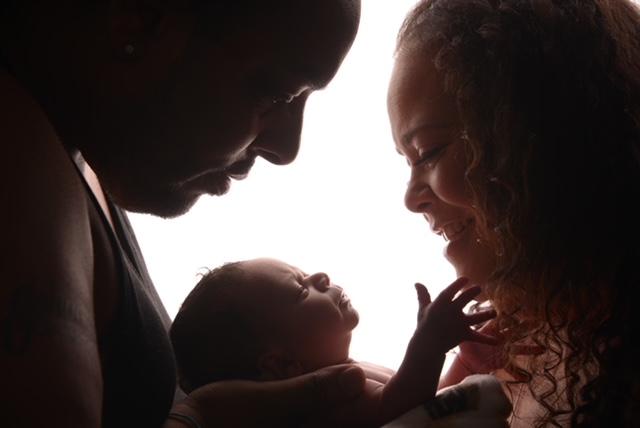
18 Nov Is Embryo Adoption a Good Alternative to IVF?
Key Takeaways:
Learn the benefits and disadvantages to Embryo Adoption vs. In Vitro Fertilization or IVF. We will cover the Embryo Adoption process and the IVF process to provide couples who are looking to start their own family, and will have all the information they need to make the best choice for their fertility situation.
What is Embryo Adoption?
Embryo adoption is a newer kind of adoption where couples are able to receive embryos from a donating family that is done with building their own family. Rather than leave them frozen indefinitely or donate them to science, these couples have chosen to give others a chance to start a family. Both the donating and adoptive couples go through a screening process to determine if this is a good path for them. Both families provide specific information about themselves to share with the other family, while only being known on a first name basis. In rare cases, embryos are donated anonymously in which case the adoptive agency picks a suitable couple to adopt the embryos.
How Does Embryo Adoption Work?
Embryo Adoption Agencies facilitate this arrangement similarly to traditional adoption. Couples are matched with their donors based on the similarities they are looking for such as; race, religion and other basic similar demographics. Once a match is made, contracts are provided for both families to sign.
Documents about the embryos are sent to the adopting family’s clinic to comply with the FDA regulations for embryo donation. Once the embryo documentation process with the adopting couples fertility clinic is completed, the embryos are shipped to the adopting family clinic using a shipping company specialized in shipping embryos.
From this point the adopting family’s Fertility Specialist will take over and prepare the adopting mom for the embryo transfer. One embryo at a time is transferred now to adhere to the recommendations of the American Society for Reproductive Medicine guidelines. Any embryos not transferred go back to the donor family to re-select another adopting family.
Who Can Adopt Embryos?
In general couples that are struggling with infertility are the likely candidates for embryo adoption, many of these couples have tried In Vitro Fertilization or IVF with no success using their own eggs and sperm. Couples do not have be infertile to qualify for embryo adoption but these couples are the most motivated to desire this as an option.
What is In Vitro Fertilization or IVF?
In vitro fertilization (IVF) is a medical procedure that helps people conceive by fertilizing an egg with sperm in a lab, then transferring the resulting embryo(s) into a uterus. It is a form of assisted reproductive technology (ART) used to treat infertility caused by a variety of factors.
The IVF process
- Ovarian stimulation: Medications, often in the form of hormone shots, are used to stimulate the ovaries to produce multiple eggs.
- Egg retrieval: When the eggs are mature, a surgical procedure is performed to retrieve them from the ovaries.
- Fertilization: Eggs are fertilized by sperm in a laboratory dish.
- Embryo culture: The fertilized eggs are monitored as they develop into embryos for several days.
- Embryo transfer: One or more embryos are transferred into the uterus with the hope that one will implant and result in a pregnancy.
Embryo Adoption vs. In Vitro Fertilization
| Category | Embryo Adoption | In Vitro Fertilization (IVF) | |||||||
|---|---|---|---|---|---|---|---|---|---|
| Definition | Adopting embryos that were created by another couple and then frozen; the adopting mother carries and gives birth. | A process where a woman’s own eggs are fertilized with sperm in a lab, and resulting embryos are transferred to the uterus. | |||||||
| Genetic Connection | No genetic connection to the child for either parent (unless donor sperm/egg from intended parents was used to create the original embryo). | Biological connection exists if intended parents use their own eggs/sperm. | |||||||
| Process Duration | Typically shorter because there is no ovarian stimulation or egg retrieval needed | Longer; due to ovarian stimulation, egg retrieval, fertilization, embryo development, and transfer. | |||||||
| Cost | Usually less expensive ($8,000–$10,000 depending on program and transfers). | More expensive ($12,000–$25,000+ per cycle, often requiring multiple cycles). | |||||||
| Medical Involvement for Mother | Fewer procedures; involves uterine prep, screenings, and embryo transfer. | More medically intensive: hormones, monitoring, egg retrieval, fertilization, embryo culture, and transfer. | |||||||
| Success Rates | Depends on the embryo’s quality, age of the biological mother at the time of embryo creation, and uterine health of the recipient. | Depends on the woman’s current age, egg quality, sperm quality, and clinic expertise. | |||||||
| Control Over Genetics | Limited; the adopting family may choose donor profiles, but genetics are predetermined. | Full genetic control if using own materials; partial if using donor eggs or sperm. | |||||||
| Number of Embryos Available | Limited by donor availability; options vary by agency/clinic. (Embryo Adoptions Services of Cedar Park has many available embryos to adopt!) | Parents can create multiple embryos, freeze extras, and control timing of transfers | |||||||
| Who It's Best For | Families wanting to experience pregnancy but unable to produce viable embryos. | Individuals or couples dealing with infertility who want a genetic child. |
In Summary
Embryo adoption can be a better option than IVF for many families because it is far less physically demanding, significantly more affordable, and avoids the emotional and ethical challenges that often come with creating new embryos. It allows parents to give an existing embryo a chance at life while still experiencing pregnancy and birth themselves. With predictable outcomes, fewer medical risks, a shorter timeline, and alignment with many families’ moral or religious values, embryo adoption offers a meaningful, compassionate, and practical path to growing a family. Embryo Adoption Services of Cedar park is a nationwide embryo adoption agency enabling families to find each other, and for precious embryos to have a chance to be born into a loving family.
Our Founder Maria Lancaster founded Embryo Adoption and Donation Services of Cedar Park after her first hand experience in adopting embryos. Thanks to the miracle of embryo adoption she was able to start her own family. Check out this article from the Seattle Times and watch the video below!

Frequently Asked Questions About Embryo Adoption
How much are the fees of Embryo Adoption Services of Cedar Park?
Fees are: $375 application fee, $6,800 program fee, $1,800 home study fee. The “Program Fee” can be paid over time in a flexible payment plan. There are no fees for placing/donating families.
How long does it take?
Generally, 1-2 months to do the home study, and find your match. We can give you a better estimate when we get some information about your family and your needs.
Do you have to do home study?
Yes, adopting families must have a home study by a licensed social worker prior to matching you with a family. We do have a social worker that can come to you, anywhere in the U.S.
How many embryos do we receive once we are matched with a family?
You will receive all the embryos that the donating/placing family has remaining. This could be 2-20 embryos (average 4-8). Once your family is complete, the embryos remaining would be matched with another family , and would not be your responsibility to make any decisions for the remaining embryos. If any born children come from another match, it can be possible to have contact with that family for the sake of sibling relationships. Not required.
Do you have embryos available right now?
Yes, we do. This includes embryos from many different racial and ethnic backgrounds and combinations. We currently have no waiting list.
If we are making our embryos available for another family, can we decide which family they will be placed in?
Yes, we will send you a family profile for an approved adopting family, based on strong similarities, values, and the desired degree of contact with each other. If this family feels right to you, we will send your info to them to see and approve of as well. If everyone is comfortable, that is a successful “family match”. You can choose any desired contact you desire, including “no contact”.
Do you handle the shipping and logistics of shipping the embryos?
Yes, we do that, working with both clinics. You pay only shipping fees for the actual carrier, FED EX etc.
What are the average success rates?
Generally speaking, on a national average, there is a born child per transfer about 35 – 40% of the time. There are many variables that can increase the odds of success. To date, our success rates are higher than the national average. You will receive an entire set of embryos, so you will be able to try more than one time, thereby greatly increasing your chances of a live baby through your match.
Do we get medical history background on the donating/placing families?
Absolutely, you will have all that information before you make a final decision if this is the right family match for you. Photos and letters from the placing/donating family will be sent to you as well as almost all cases. There are some rare exceptions photos not provided.


